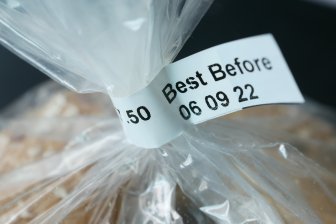Once upon a time, many centuries ago, someone came up with the idea of gathering all the world’s available knowledge and storing it in one place. That way, anyone who had questions about anything had somewhere to go to get the answers. And thus the concept of the library was born.

Considerably later, this same concept was applied to recorded music. Governments, broadcasters, companies, and private individuals began collecting together as much of humankind’s recorded audio as they could.
The BBC famous has hundreds of kilometres of shelving for physical media like CDs, vinyl, and tapes. There’s a guy in Brazil named Zero Freitas who is on a quest to create a private collection containing all the records ever made. So far, he’s amassed about eight million records and hundreds of thousands of CDs.
Nice. But that still doesn’t cover everything.
In the 1980s, some people began to conceive the notion of a giant computer somewhere that could hold all of humanity’s music in digital form. If you needed a song, it would be instantly available from that computer. That brings us to a law professor named Paul Goldstein, who, in 1994, popularized the term “celestial jukebox.” He foresaw a massively networked database available to anyone with a connection to this new thing called the “internet.”
Just five years later, the original version of Napster went online. And suddenly, it seemed that you could down any song you wanted, however illegal that might have been.
Then, in 2003, came the iTunes Music Store. Starting with several hundred thousand songs, it has since expanded to tens of millions of tracks that are up for sale to anyone with a credit card. Again that’s nice, but it still doesn’t quite cut it because you have to pay for this music.
Then came streaming. All platforms draw from a digital music library that contains at least 90 million songs and more are being added every day (Spotify sees uploads of 60,000 tracks every day). And we can access this music anytime we want from wherever we happened to be using a variety of devices.
The price? Given what we’re able to do, it’s negligible. In fact, it can even be totally free.
Think about that for a second. We can listen to virtually any song ever recorded in seconds and pay nothing. That theoretical celestial jukebox has arrived. What was once science fiction is now taken for granted.
Question: How well do you know how all this works? This is 23 points you might not know about streaming, part two.
Songs heard on this show:
- Panic! At the Disco, Say Amen Saturday Night
- Depeche Mode, Behind the Wheel/Rt. 66
- Twenty One Pilots, Heavydirtysoul
- U2, Where the Streets Have No Name
- Radiohead, Burn the Witch
- Foo Fighters, Everlong
- Gotye, Somebody That I Used to Know
- Strokes, Last Nite
And here’s Eric Wilhite’s playlist. https://open.spotify.com/playlist/0GlFDDurScD6oOXyww4BXD?si=lckGMADWQ7CKB0KQjaZ9Jg
The Ongoing History of New Music can be heard on the following stations:
- 102.1 The Edge/Toronto – Sunday night at 7
- Q107/Toronto
- Live 88-5/Ottawa
- 107.5 Dave-FM/Kitchener
- FM96/London
- Power 97/Winnipeg
- Sonic 102.9/Edmonton
- The Zone/Victoria
- The Fox/Vancouver
- Surge 105/Halifax
- WAPS/WKTL The Summit/Arkon, Canton, Cleveland, Youngstown
We’re still looking for more affiliates in Calgary, Kamloops, Kelowna, Regina, Saskatoon, Brandon, Windsor, Montreal, Charlottetown, Moncton, Fredericton, and St John’s, and anywhere else with a transmitter. If you’re in any of those markets and you want the show, lemme know and I’ll see what I can do.




Comments